The Chinese Academy of Sciences (CAS) and the Chinese Academy of Engineering (CAE) announced on Nov. 18 the list of newly elected academicians of 2021, among which were five professors from Tongji University. Professor LI Jie from the College of Civil Engineering was elected academician of CAS while Professor JIANG Changjun from the College of Electronic and Information Engineering and Professor ZHU Hehua from the College of Civil Engineering academicians of CAE. In addition, Professor Otto H. Herzog and Professor Dimitri E. Beskos were elected foreign academicians of CAE. Professor WANG Mingyang, an alumnus of Tongji University, was also elected academician of CAE.
Professor LI Jie, born in October 1957 in Kaifeng, Henan Province, graduated from Tongji University in September 1988 with a PhD degree in engineering. In April 2013, he was awarded an honorary doctorate by Aalborg University in Denmark. He is now a Distinguished Professor at Tongji University and serves as the director of the Shanghai Institute of Disaster Prevention and Relief.
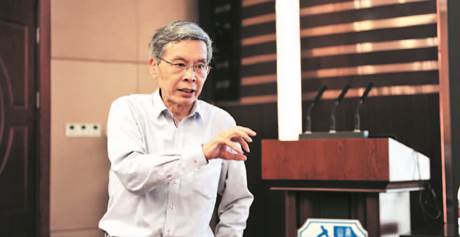
Professor LI Jie
Professor LI has long been engaged in teaching and research in structural engineering and prevention of engineering disasters. He is internationally acknowledged for his scholarship in stochastic mechanics, engineering reliability theory and lifeline engineeringHe has made outstanding achievements in establishing the generalized probability density evolution equation for stochastic system analysis, solving the problem of reliability analysis for disaster resistance of complex structures, and also setting up the network topology optimization as the core of engineering network aseismic optimum design theory. He authored five books and published more than 400 papers in leading journals at home and abroad. He won a second prize of the State Natural Science Award and a third prize of the National Prize for Progress in Science and Technology. He was awarded National Excellent Teacher (2001), Shanghai Model Worker (2004), National Outstanding Science and Technology Workers (2012) among others. He was awarded the Freudenthal Medal for Academic Achievement by the American Society of Civil Engineers (ASCE) in 2014 for his academic excellence in probability density evolution theory and reliability of large-scale infrastructure systems, and was elected president of the International Association for Structural Safety and Reliability in 2017.
Professor JIANG Changjun, born in May 1962 in Anqing, Anhui Province, is a expert in computer science and engineering. He received his PhD degree from the Institute of Automation, the Chinese Academy of Sciences in 1995,. He is a professor and doctoral supervisor of Tongji University, Honorary Professor of Brunel University, U.K and a member of the Institution of Engineering and Technology. He was vic.e president of Tongji University and president of Donghua University. He has long been committed to research in Financial Services Information Security Network, is a leading figure in this field in China.
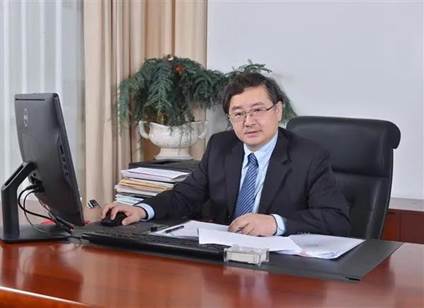
Professor JIANG Changjun
Financial security is an important part of national security, and online transaction risk control is a major challenge for financial security. Professor JIANG overcame major technical difficulties in system risk prevention and control, and headed the establishment of China’s first online transaction risk prevention and control system, and its standard. He led and completed over 50 projects including those funded by the National Natural Science Foundation of China, Projects 973 and 863, international cooperation projects, and national key R&D programs. He won a second prize of the National Technological Invention Award, and two second prizes of the National Science and Technology Progress Award, and a co-winner of HO PAN CHING YI Award. He obtained 77 Chinese and American invention patents and 21 international PCT patents. He published more than 300 academic papers (including 72 ACM/IEEE Transactions) and 5 academic monographs in Chinese and English. He was awarded the titles of National Outstanding Scientific and Technological Worker 2016 and the National Innovation Pioneer 2020.
Professor ZHU Hehua was born in October 1962. He received his PhD degree in engineering fromTongji University in October 1989, specializing in structural engineering (underground structure). He is a Distinguished Professor at Tongji University and a registered civil engineer of geotechnique in China. He also acts as the director of the Civil Information Technology Engineering Research Center of the Ministry of Education, and leads the tunnel and underground construction engineering discipline at Tongji University.
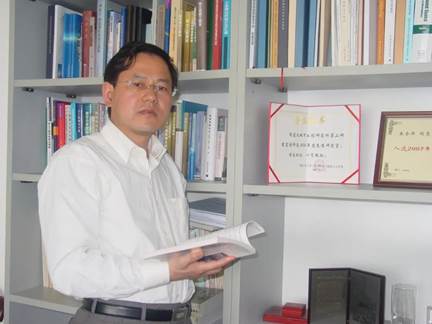
Professor ZHU Hehua
Professor ZHU has been engaged in teaching and research in tunnels and underground space for over 30 years, and was selected the chief scientist of the National Project 973. He won two second prizes of the National Science and Technology Progress Award, one for his research on Theory of Soft Soil Shield Tunnel Design and Construction Control Technology and its Application in 2008, and the other for his research on Key Technology of Large-Scale Underground Space Construction in Dense Urban Areas and Its Integrated Demonstration in 2016. He also won two special prizes and ten first prizes of scientific and technological achievements at provincial, ministerial levels and from professional societies. He compiled five industry technical standards, obtained over 50 invention patents, authored 7 monographs, published over 380 papers in domestic and international academic journals, and founded the international academic journal Underground Space (SCIE-indexed). He was awarded the Eleventh Five-Year Plan Outstanding Contribution Award by the Ministry of Science and Technology, National Outstanding Science and Technology Worker, and Shanghai Teaching Master. He received the Theodore Hsueh-Huang Pian International Academic Merit Award in 2012, and the Humboldt Research Award,Germany in 2015.
Professor Otto Heinrich Herzog, an internationally renowned scientist in artificial intelligence, is a member of the German Academy of Engineering Sciences, and former head of international cooperation of the German Academy of Engineering Sciences. He is a professor of Tongji University, the chief scientist of the Collaborative Innovation Center for Intelligent Planning of the Yangtze River Delta City Cluster at Tongji University. He is a pioneer and leader in the field of artificial intelligence in Germany, and was named one of the Ten Most Influential People in the history of Artificial Intelligence in Germany by the German Federal Ministry of Education and Research and the German National Informatics Society.
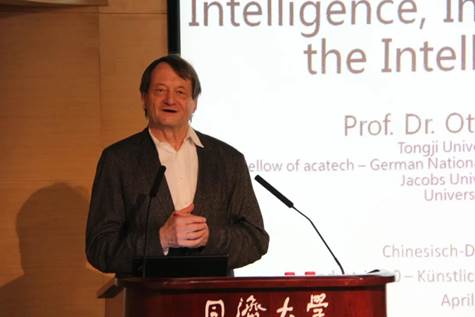
Professor Otto Heinrich Herzog
Professor Herzog worked for IBM Germany from 1977 to 1993, responsible for software product development, AI research and AI technology transfer. In 1985, he founded the first European Institute for Artificial Intelligence at IBM Germany and served as its director. From 1993 to 2009, he was Professor of Artificial Intelligence at the University of Bremen, Germany, where he founded and directed the Center for Computing and Information Technology (TZI) in 2009. From 2010 to 2019, he was Professor of Wisdom in Visual Information Technology at Jacobs University Bremen. In 2015, he joined the Collaborative Innovation Center for Intelligent Planning of the Yangtze River Delta City Cluster at Tongji University. In September, the Shanghai Municipal Government awarded him the Magnolia Award for his contribution to the development of Shanghai and international cooperation.
Professor Dimitri E. Beskos, born in 1946, Greece, is an internationally renowned scholar in structural dynamics and a pioneer of the boundary element method. He has long been devoted to the research and teaching of computational mechanics. He taught at Cornell University, the University of Minnesota, USA, University of Patras, Greece, and teaches at Tongji University, China, He is a member of the Academy of Sciences of Athens, a member of the Academia Europaea, and a member of the European Academy of Sciences and Arts. Since September 2016, Professor Beskos has been appointed as a professor in the College of Civil Engineering at Tongji University.
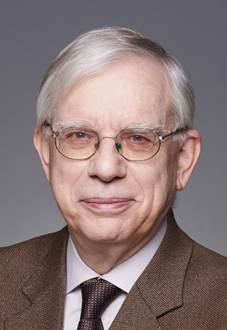
Professor Beskos
In recognition of his outstanding contributions to the boundary element method and structural dynamics, the International Conference on Computational and Experimental Science Engineering (ICCES), the leading international conference on computational mechanics, awarded him the E. Reissner Prize in 2003 and the Lifetime Achievement Award in 2011. In 2009, Springer Publishing published a special issue entitled Advances in the Boundary Element Method in recognition of his remarkable scholarship. He was awarded the Humboldt Research Award 2013-2014 in Germany. He was Vice-president of the International Society of Boundary Element Method, founder of the Hellenic Society of Computational Mechanics, President (honorary) of the Hellenic Society of Mechanics, and President of the Hellenic Society for the Study of Metal Structures. He is a long-time editor-in-chief of the internationally renowned academic journal Soil Dynamics and Earthquake Engineering, a former associate editor of Computational Mechanics and Applied Mechanics Review, and an editorial board member of 10 other international journals.
Professor WANG Mingyang was elected as a member of CAE. He is an expert in engineering protection for high-tech drilling weapons and a doctoral supervisor at the PLA Engineering University. From 1988 to 1991, he did his Master's degree at the College of Civil Engineering, Tongji University, and from 1995 to 1997, he worked as a postdoctoral researcher at Tongji University.
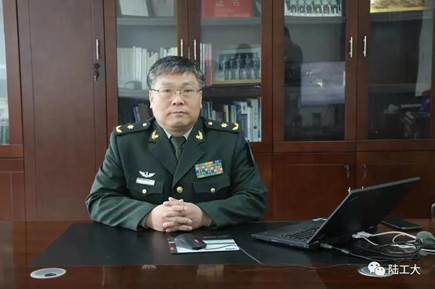
Professor WANG Mingyang
He has long been engaged in research and engineering application of destruction mechanism and engineering protection of high-tech drilling weapons. He is the head of the innovation team in the national key field of blast impact effect and engineering protection, a national outstanding youth scholar, a national outstanding science and technology worker, and the PLA's first leading talent in scientific and technological innovation. He won a first prize and three second prizes of the National Science and Technology Progress Award and several first prizes of the Army Science and Technology Progress Award, published over 150 academic papers, and authored two monographs. He was awarded second-class merit twice and third-class merit three times.
Let’s take a closer look at the academic contributions of five new academicians:
Determined to provide solid support for major constructions with scientific theories through original innovation – information of Professor LI Jie in Chinese is available at https://news.tongji.edu.cn/info/1003/79282.htm
"The value of scientific research is to benefit the people" - information of Professor JIANG Changjun in Chinese is available at https://news.tongji.edu.cn/info/1003/79287.htm
"Digital underground: from engineering and serve engineering" - information of Professor ZHU Hehua in Chinese is available at https://news.tongji.edu.cn/info/1003/79285.htm
Rooted in Shanghai, helping China to build a highland of artificial intelligence innovation - information of Professor Herzog in Chinese is available at https://news.tongji.edu.cn/info/1003/79283.htm
An inseparable bond with China - information of Professor Beskos in Chinese is available at https://news.tongji.edu.cn/info/1003/79284.htm
Source: https://news.tongji.edu.cn/info/1003/79270.htm